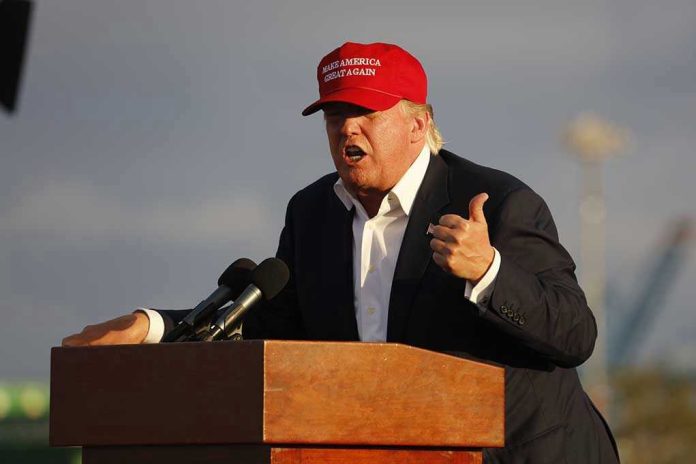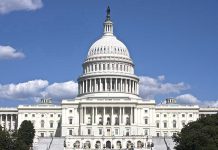
Donald Trump’s meeting with Qatar’s Emir aboard Air Force One captured global attention, underscoring the evolving dynamics of U.S.-Middle East relations.
Story Overview
- Trump met Qatar’s Emir Sheikh Tamim bin Hamad Al Thani aboard Air Force One.
- The meeting emphasized strategic ties between the U.S. and Qatar.
- Discussions focused on regional security and energy cooperation.
- Qatar’s resilience post-2017 blockade strengthens its global standing.
Strategic Meeting Aboard Air Force One
On October 25, 2025, President Donald Trump held a momentous meeting with Qatar’s Emir Sheikh Tamim bin Hamad Al Thani during a refueling stop at Al Udeid Air Base, a location symbolizing the U.S.’s substantial military presence in the Middle East. Their conversation, held aboard Air Force One, highlighted the deepening strategic alliance between the U.S. and Qatar, particularly in areas of regional security, energy cooperation, and Middle Eastern peace efforts. The setting of this meeting underscored the close diplomatic relationship between the two nations.
Trump Gushes Praise For World Leader Who’s Giving Him $400 Million Jet In Meetup On Air Force One https://t.co/nk9aIBnr8o
— #TuckFrump (@realTuckFrumper) October 25, 2025
In recent years, the U.S.-Qatar relationship has been pivotal, especially after Qatar faced a blockade from neighboring countries in 2017. This geopolitical tension demonstrated Qatar’s strategic importance to the U.S. and its resilience in strengthening diplomatic and economic ties globally. The meeting between Trump and the Emir serves as a testament to Qatar’s growing influence and its critical role as a mediator in regional conflicts.
Historical Ties and Current Dynamics
Al Udeid Air Base has historically been a cornerstone of U.S. military strategy in the Middle East, hosting the largest U.S. military base in the region. This strategic partnership has been essential for regional security and counterterrorism efforts, reflecting decades of cooperation between the two nations. The recent meeting reaffirms this alliance, with both leaders committed to enhancing defense partnerships and counterterrorism initiatives.
President Trump expressed appreciation for Qatar’s contributions to maintaining regional peace and security, recognizing the Emir’s efforts in mediating regional tensions. This relationship is not only crucial for regional stability but also for the U.S. to maintain its influence and interests in the Middle East. The leaders’ discussions also ventured into energy collaboration, a significant aspect given the global energy market dynamics.
Implications for the Future
The meeting’s short-term implications include enhanced cooperation in security and energy sectors, potentially leading to increased trade and investment opportunities. In the long term, the strengthened strategic partnership could elevate both nations’ economic and political influence on a global scale. This collaboration is poised to impact regional stability, with potential ripple effects extending beyond the Middle East.
Economically, the partnership could spark new avenues for investment and trade, fostering growth in both nations. Socially, enhanced regional stability might lead to improved living conditions for communities across the Middle East. Politically, the strengthened alliances could shift regional power dynamics, influencing global governance. As these developments unfold, the world watches closely, understanding the profound impact this partnership may have on broader international relations.
Expert Perspectives and Analysis
Experts view the meeting as a pivotal moment in solidifying U.S.-Qatar relations. The strategic importance of their partnership in ensuring Middle Eastern stability cannot be overstated. Scholars emphasize the diplomatic efforts as vital for regional peace and economic growth, suggesting that the U.S.’s continued engagement with Qatar is a calculated move to retain its influence in the region.
Diverse viewpoints highlight the meeting as a testament to Qatar’s diplomatic prowess and its ability to navigate complex geopolitical landscapes. As the U.S. and Qatar continue to strengthen their ties, analysts will closely monitor how this relationship influences not only regional politics but also global strategic alignments.












